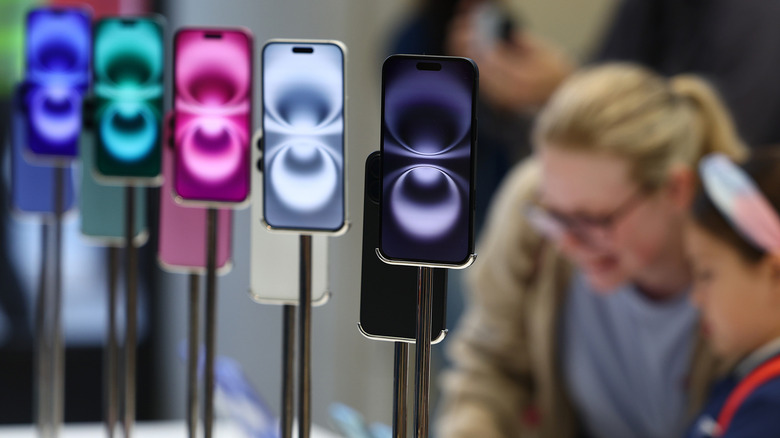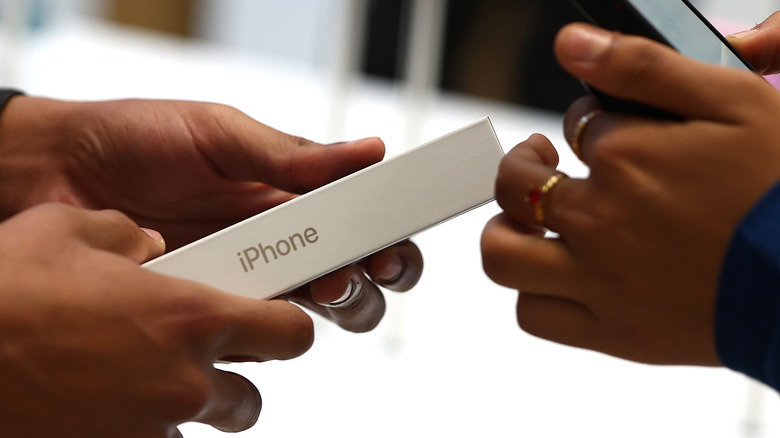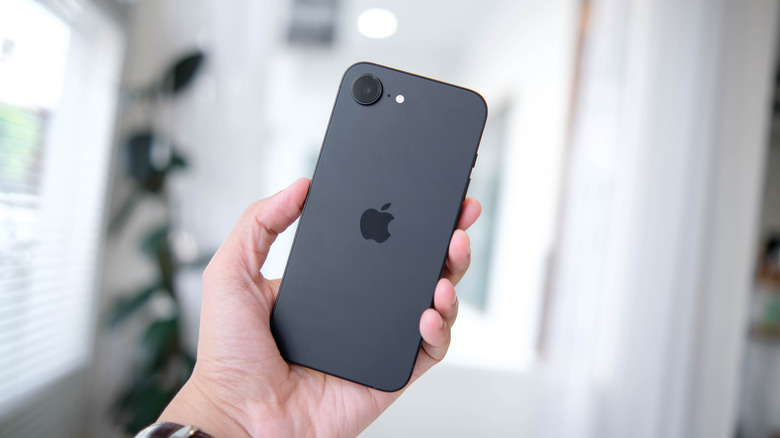Last-Minute iPhone 17 Air Leak Offers Hope For A Long-Lasting Battery
The iPhone 17 launch event scheduled for next Tuesday will deliver one of Apple's biggest iPhone redesigns in years. The iPhone 17 Air will replace the Plus model in Apple's September lineup, becoming Apple's thinnest iPhone to date. Multiple reports have claimed in the past few months that the iPhone 17 Air will be around 5.5mm thick, with dummy units further reinforcing those rumors.
With a few days to go until Apple's iPhone 17 launch event, those rumors are probably accurate. The iPhone 17 Air will introduce a new type of iPhone — a slim device with a large-screen display. Compromises reportedly had to be made for this iPhone design. The iPhone 17 Air is said to feature a single-lens camera on the back, lack a physical SIM card slot, and pack an ultra-thin battery. The last compromise is likely the biggest concern for any iPhone owner thinking about upgrading to the iPhone 17 Air.
A last-minute iPhone 17 Air leak seems to deliver good news regarding battery life, though it doesn't provide actual estimates. The analysts at TrendForce claim the iPhone 17 Air will feature a silicon anode battery, which is a type of smartphone battery that appeared in previous leaks detailing Apple's purported battery innovations for future iPhone generations. Silicon anode batteries feature lithium-ion cells where the graphite in the anode is partially replaced by silicon. This chemical alteration can improve battery life in thinner devices as silicon binds to lithium better than graphite. The result is a high-energy battery in a thinner package.
What we think we know about the iPhone 17 Air battery
"The Air model will use a silicon anode battery and eSIM configuration to balance slimness with endurance," TrendForce said in a report on Thursday, the same analysis that indicated the iPhone 17 Air might cost $200 more than the iPhone 16 Plus. The analysts did not expand on the "silicon anode battery" tech, and the mention could be easily overlooked. TrendForce also didn't say where it sourced its information from. It could come from supply chain sources or it could be an educated guess based on all the previous iPhone 17 Air rumors.
But TrendForce isn't the first to mention new iPhone battery technologies that might be in the works. Rumors discussed stacked battery tech for the iPhone earlier this year. Before that, silicon iPhone batteries appeared in reports just as competitors were launching phones featuring silicon carbon batteries. Honor is one example, having introduced this smartphone battery technology at MWC 2023.
Ming-Chi Kuo, an analyst known for his accurate reports about unreleased products, said in March that next year's foldable iPhone will use "the same high-density battery cells as the ultra-thin iPhone 17." He didn't explain the battery tech Apple would use in greater detail, but silicon anode batteries would qualify.
How long will the iPhone 17 Air battery last?
More recently, iPhone 17 Air rumors suggested the phone will have a battery capacity of under 3,000mAh. The battery would be 2.49mm thick, which would make it about half as thick as the iPhone 17 Pro battery. The standard iPhone 16 model has a 3,561mAh battery that can last up to 22 hours in Apple's video playback estimate. The iPhone 16e features a larger 4,005mAh battery, good for up to 26 hours of battery life during video playback. The standard iPhone 17 might feature similar battery life to its predecessor.
In May, The Information reported that the iPhone 17 Air battery life will be worse than previous iPhones. Apple's internal tests reportedly showed that 60% to 70% of buyers will not need to recharge the iPhone 17 Air throughout the day. That percentage is significantly lower than other iPhone models. Between 80% and 90% of buyers would not need to recharge those devices during the day. The same report said that Apple might release a battery case to mitigate battery life problems. However, it did not offer battery life estimates, nor did it mention the chemical structure of the battery.
All this makes the use of silicon anode batteries inside the iPhone 17 Air more plausible. Apple will want to offer the best possible battery life in the iPhone 17 Air and avoid any backlash from consumers. Traditional batteries might not be enough. Also, Apple may need to use similarly thin batteries inside the foldable iPhone. The iPhone 17 Air would be a suitable testing ground for new battery technologies.


